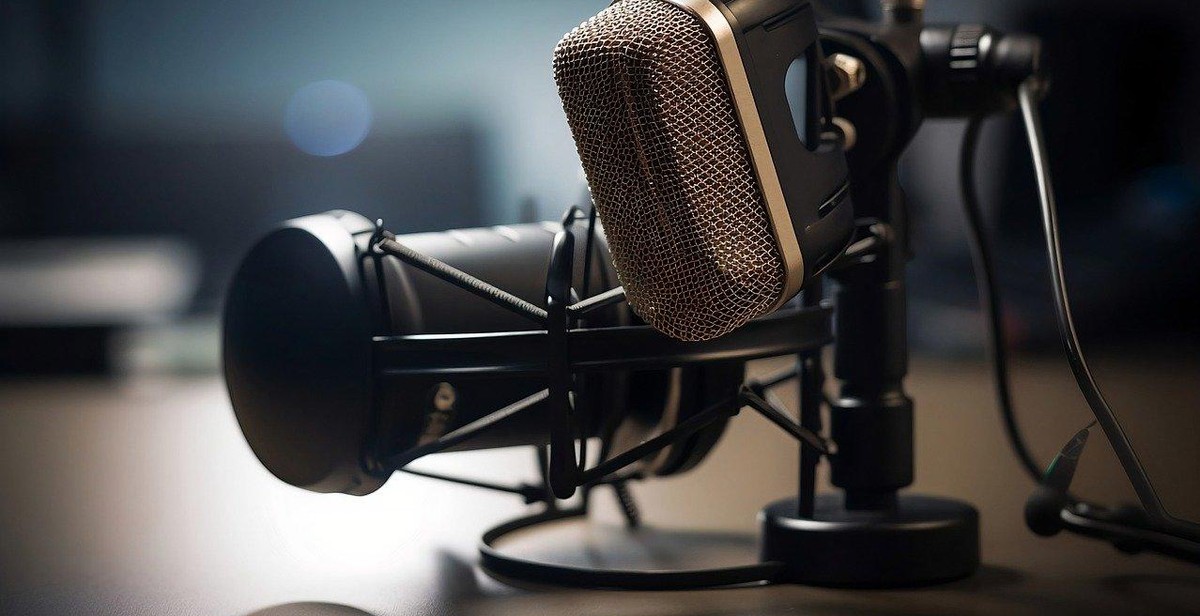How to Start a Podcast: Tips for Planning, Recording, and Promoting Your Show
Podcasting has become an increasingly popular way for individuals and businesses to share their voice and message with the world. However, starting a podcast can seem like a daunting task, especially if you don’t know where to begin. In this article, I will share my personal experience and tips for planning, recording, and promoting your podcast.
Planning Your Podcast
Before diving into recording your first episode, it’s essential to have a clear plan for your podcast. This includes defining your niche, identifying your target audience, and creating a content strategy.
- Define Your Niche: What topics will your podcast cover? What makes it unique from other podcasts in your niche?
- Identify Your Target Audience: Who is your ideal listener? What are their interests and pain points?
- Create a Content Strategy: Plan out your episodes, including topics, guests, and structure.
Recording Your Podcast
Once you have a plan in place, it’s time to start recording your podcast. Here are some tips to ensure your recordings are high-quality:
- Invest in Good Equipment: A quality microphone and headphones can make a big difference in the sound of your podcast.
- Choose a Quiet Space: Find a quiet room or space to record in to minimize background noise.
- Practice Makes Perfect: Don’t be afraid to re-record if you’re not happy with the first take.
Promoting Your Podcast
Finally, promoting your podcast is essential to growing your audience. Here are some tips to get started:
- Submit to Podcast Directories: Submit your podcast to directories like Apple Podcasts, Spotify, and Google Podcasts.
- Utilize Social Media: Share your podcast on social media platforms and engage with your audience.
- Collaborate with Other Podcasts: Reach out to other podcasts in your niche and collaborate on episodes or cross-promote each other’s shows.
Why Start a Podcast?
If you’re looking for a way to connect with a wider audience, build a community, and share your passion with the world, starting a podcast may be the perfect solution. Podcasting has exploded in popularity in recent years, with millions of listeners tuning in to a wide variety of shows on a daily basis. Here are just a few reasons why you should consider starting your own podcast:
Build a Community
Podcasting is a great way to build a community around your brand or your interests. By creating a regular show that your listeners can tune into, you’re giving them a reason to come back to your website or social media pages on a regular basis. Over time, your listeners will begin to feel like they know you and your brand, and they’ll become loyal fans who are eager to engage with you and support your work.
Share Your Passion
Podcasting is also a great way to share your passion with the world. Whether you’re an expert in a particular field or you just love talking about a certain topic, podcasting gives you a platform to share your knowledge and insights with a wider audience. And because podcasts are so versatile, you can experiment with different formats and styles until you find the one that works best for you.
Grow Your Brand
If you’re an entrepreneur or a small business owner, podcasting can be a powerful tool for growing your brand. By sharing your expertise and insights with your listeners, you’ll establish yourself as a thought leader in your industry and build trust with potential customers. And because podcasts are so shareable, your listeners will help spread the word about your brand to their own networks.
Generate Revenue
Finally, podcasting can also be a great way to generate revenue. There are a variety of ways to monetize your podcast, from sponsorships and advertising to merchandise sales and premium content. And because podcasts have such a loyal and engaged audience, many podcasters are able to generate significant income from their shows.
| Reasons to Start a Podcast |
|---|
| Build a Community |
| Share Your Passion |
| Grow Your Brand |
| Generate Revenue |
Planning Your Podcast
Before you hit the record button, it’s essential to have a plan for your podcast. This will help you stay focused and organized throughout the process. Here are some crucial factors to consider when planning your podcast:
Define Your Niche
What topic or theme will your podcast be about? It’s essential to define your niche and target audience to make sure your content resonates with listeners. Consider what you’re passionate about and what you’re knowledgeable about. It’s also important to research your competition and find a unique angle to differentiate yourself.
Choose a Format
There are several podcast formats to choose from, including solo shows, co-hosted shows, interview shows, and storytelling shows. Consider what format will best suit your topic and style. For example, if you’re an expert in a particular field, a solo show may work well. If you want to bring in different perspectives, an interview format may be a good fit.
Create a Show Outline
A show outline will help you stay organized and ensure you cover all the topics you want to discuss. It should include an introduction, segments, and a conclusion. Consider what segments will work best for your format and topic. For example, a news-focused show may have a segment for headlines and a deep dive into a particular story.
Determine Your Recording Schedule
Consistency is key when it comes to podcasting. Determine how often you’ll release episodes and create a recording schedule that works for you. It’s also important to consider how far in advance you’ll need to plan and record episodes. For example, if you plan to release episodes weekly, you may want to record several episodes in advance to stay ahead.
| Key Points: |
|---|
| Define your niche and target audience. |
| Choose a format that suits your topic and style. |
| Create a show outline that includes an introduction, segments, and a conclusion. |
| Determine your recording schedule and plan ahead. |

Recording Your Podcast
Now that you have planned your podcast, it’s time to start recording. Here are some tips to ensure that your podcast sounds professional:
Invest in Quality Equipment
Investing in quality equipment is crucial to ensure that your podcast sounds professional. You will need a good microphone, headphones, and a mixer or audio interface. There are many options available in the market, and it’s important to do your research to find the best equipment for your budget.
Choose a Recording Space
When choosing a recording space, it’s important to consider the acoustics of the room. You want to record in a space that has minimal background noise and echoes. If you don’t have a dedicated recording space, consider using a closet or a small room with lots of soft furnishings to absorb sound.
Script or Outline Your Show
Scripting or outlining your show can help you stay on track and ensure that you cover all the important points. This is especially important if you have guests on your show. A script or outline can also help you edit your show more efficiently.
Record and Edit Your Episodes
When recording your episodes, make sure to test your equipment and record a few seconds of audio to ensure that everything is working properly. It’s also important to record in a quiet environment to avoid any unwanted background noise. After recording, edit your episodes to remove any mistakes or long pauses. You can also add music or sound effects to enhance your show.
By following these tips, you can ensure that your podcast sounds professional and engaging. Happy recording!

Promoting Your Podcast
Creating a podcast is only half the battle. The other half is promoting it. Here are some effective ways to get the word out about your podcast.
Create a Website or Landing Page
Having a website or landing page for your podcast is crucial for promoting it. You can use your website to showcase your episodes, provide information about your show, and even sell merchandise. Make sure your website is optimized for search engines by using relevant keywords and meta descriptions. You can also include a call-to-action on your website to encourage visitors to subscribe to your podcast.
Leverage Social Media
Social media is a powerful tool for promoting your podcast. Create social media accounts for your podcast on platforms like Twitter, Instagram, and Facebook. Share your episodes on these platforms and engage with your audience. You can also use social media to tease upcoming episodes or share behind-the-scenes content. Make sure to use relevant hashtags to increase your reach.
Guest on Other Podcasts
Guesting on other podcasts is a great way to promote your own podcast. Find podcasts that are in your niche or related to your topic and reach out to the host to see if they would be interested in having you as a guest. During the episode, you can talk about your own podcast and encourage listeners to check it out.
Collaborate with Other Creators
Collaborating with other creators can help you reach new audiences and promote your podcast. You can collaborate with other podcasters, bloggers, or YouTubers. For example, you can invite a guest on your show or participate in a joint podcast episode. You can also cross-promote each other’s content on social media.
| Method | Description |
|---|---|
| Create a Website or Landing Page | Build a website or landing page dedicated to your podcast to showcase episodes and sell merchandise. |
| Leverage Social Media | Use social media platforms to share episodes, engage with your audience, and tease upcoming content. |
| Guest on Other Podcasts | Appear as a guest on other podcasts to promote your own podcast to new audiences. |
| Collaborate with Other Creators | Partner with other creators to reach new audiences and cross-promote each other’s content. |

Conclusion
Starting a podcast can be a fun and rewarding experience, but it requires planning, dedication, and hard work. By following the tips outlined in this article, you can increase your chances of success and create a podcast that resonates with your target audience.
Plan your podcast
Before you start recording, take the time to plan your podcast. Define your niche, research your competition, create a content calendar, and decide on the format and length of your episodes.
Invest in quality equipment
Investing in quality equipment can make a big difference in the quality of your podcast. Purchase a good microphone, headphones, and recording software to ensure that your audio is clear and professional.
Record and edit your episodes
When recording your episodes, be sure to speak clearly and concisely. Edit your episodes to remove any mistakes or dead air, and add intros, outros, and music to make your podcast more engaging.
Promote your podcast
Promoting your podcast is essential to growing your audience. Use social media, email marketing, and guest appearances on other podcasts to promote your show and reach new listeners.
Remember, building a successful podcast takes time and effort. Stay consistent, engage with your audience, and have fun!
| Tip: | Consider partnering with a podcast hosting platform like Buzzsprout or Libsyn to make it easier to distribute your podcast to major platforms like Apple Podcasts, Spotify, and Google Podcasts. |
